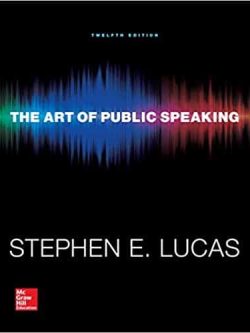Specifications
| book-author | Steinar Kvale ; Svend Brinkmann |
|---|---|
| file-type | |
| isbn10 | 0761925422 |
| isbn13 | 9780761925422 |
| language | English |
| publisher | SAGE Publications |
Book Description
“InterViews: Learning the Craft of Qualitative Research Interviewing, 2nd Edition” authored by Steinar Kvale and Svend Brinkmann is a comprehensive guide to conducting qualitative research interviews. Here's an overview of what this edition entails:
- Foundations of Qualitative Research: The book starts by providing a solid theoretical foundation for qualitative research, discussing the philosophical underpinnings, epistemological perspectives, and methodological approaches that guide qualitative inquiry. It introduces readers to the principles of phenomenology, hermeneutics, and social constructionism, highlighting their relevance to qualitative interviewing.
- Interview Design and Planning: Kvale and Brinkmann guide readers through the process of designing and planning qualitative research interviews. They discuss key considerations such as research questions, interview objectives, sampling strategies, and ethical issues. They also explore different types of qualitative interviews, including structured, semi-structured, and unstructured formats, and offer practical advice on selecting the most appropriate approach for a given research study.
- Interview Techniques and Strategies: The text provides in-depth coverage of interview techniques and strategies, offering guidance on establishing rapport, asking effective questions, and eliciting rich, detailed responses from participants. It explores the art of active listening, probing for deeper insights, and navigating sensitive topics with sensitivity and empathy. It also discusses the role of reflexivity and self-awareness in the interviewing process.
- Data Collection and Analysis: Kvale and Brinkmann examine the process of collecting and analyzing qualitative data gathered through interviews. They discuss methods for transcribing interviews, organizing data, and identifying themes and patterns. They also explore techniques for ensuring data quality, validity, and reliability, such as member checking and triangulation.
- Ethical Considerations: The book addresses ethical considerations in qualitative research interviewing, emphasizing the importance of informed consent, confidentiality, and respect for participants' autonomy and privacy. It provides practical guidance on navigating ethical dilemmas and safeguarding the welfare of research participants throughout the research process.
- Writing and Reporting Findings: Kvale and Brinkmann offer insights into writing up and reporting qualitative research findings. They discuss strategies for organizing and presenting interview data, crafting compelling narratives, and interpreting and contextualizing research findings within existing literature. They also explore the challenges and opportunities associated with writing qualitative research manuscripts for publication in academic journals.
- Illustrative Examples and Case Studies: Throughout the book, readers will find illustrative examples and case studies drawn from real research projects, providing concrete examples of how qualitative research interviewing is applied in practice. These examples offer valuable insights into the challenges and opportunities encountered in qualitative research, helping readers develop their interviewing skills and analytical abilities.
- Reflections on the Research Process: Kvale and Brinkmann conclude with reflections on the research process and the role of qualitative research interviewing in generating knowledge and understanding. They encourage readers to critically reflect on their own research practices and assumptions, fostering a deeper appreciation for the complexities and nuances of qualitative inquiry.
Overall, “InterViews: Learning the Craft of Qualitative Research Interviewing, 2nd Edition” serves as an invaluable resource for students, researchers, and practitioners engaged in qualitative research across various disciplines. It offers practical guidance, theoretical insights, and ethical considerations to support the development of effective interviewing skills and the conduct of rigorous and insightful qualitative research.










Reviews
There are no reviews yet.